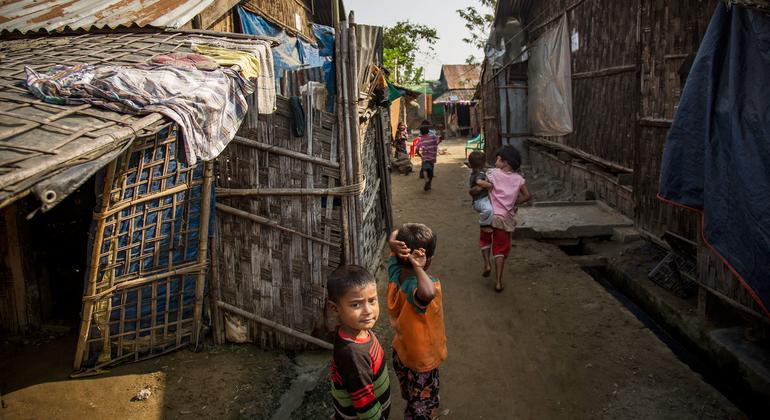The United Nations has strongly condemned recent attacks by the Myanmar military in Rakhine State and Sagaing Region, which have resulted in the deaths of many civilians. The Secretary-General is deeply concerned about the escalating violence in Myanmar and its potential regional implications. The conflict in Myanmar, particularly in Rakhine State, has led to a significant increase in violence between the military and the Arakan Army, leaving tens of thousands of people homeless. The minority Muslim Rohingya community, who have faced persecution and lack full citizenship, have been particularly targeted in these attacks.
The attacks in Myanmar have led to widespread displacement and human rights violations, with reports of beheadings, burning of homes, and other atrocities committed against the Rohingya and ethnic Rakhine communities. The UN refugee agency has reported that over 226,000 people have been uprooted due to the violence and are in need of resettlement. The situation in Myanmar has been further exacerbated by acute food insecurity, which is likely to worsen in the coming months. The UN High Commissioner for Human Rights has previously documented cases of shooting at unarmed villagers and disappearances in the country.
The Secretary-General has called for accountability for those responsible for the violence in Myanmar, emphasizing the need for the protection of all communities in the country. He has urged all parties to the conflict to exercise maximum restraint, prioritize the protection of civilians in line with international humanitarian law, and prevent further incitement of communal tension and violence. The Secretary-General is also seeking support for his Special Envoy, Julie Bishop, who is working towards fostering sustainable peace in Myanmar through collaboration with ASEAN and neighboring countries.
The situation in Myanmar highlights the importance of international cooperation and support in addressing the ongoing conflict and humanitarian crisis in the country. The UN is calling for a unified approach to address the widening regional ramifications of the deteriorating situation in Myanmar. It is essential for member states and stakeholders to work together to hold those responsible for the violence and human rights violations in Myanmar to account. By prioritizing the protection of civilians, upholding international humanitarian law, and promoting peacebuilding efforts, the international community can help alleviate the suffering of those affected by the conflict in Myanmar.
Efforts to address the crisis in Myanmar must focus on providing humanitarian assistance to those affected by the violence, supporting efforts to hold perpetrators accountable, and working towards a sustainable peace process in the country. The UN Special Envoy, Julie Bishop, plays a crucial role in these efforts by working closely with ASEAN and neighboring countries to promote dialogue and cooperation towards achieving a peaceful resolution to the conflict in Myanmar. Through international solidarity and collective action, the international community can help alleviate the suffering of those impacted by the conflict in Myanmar and work towards a more peaceful and stable future for the country.









